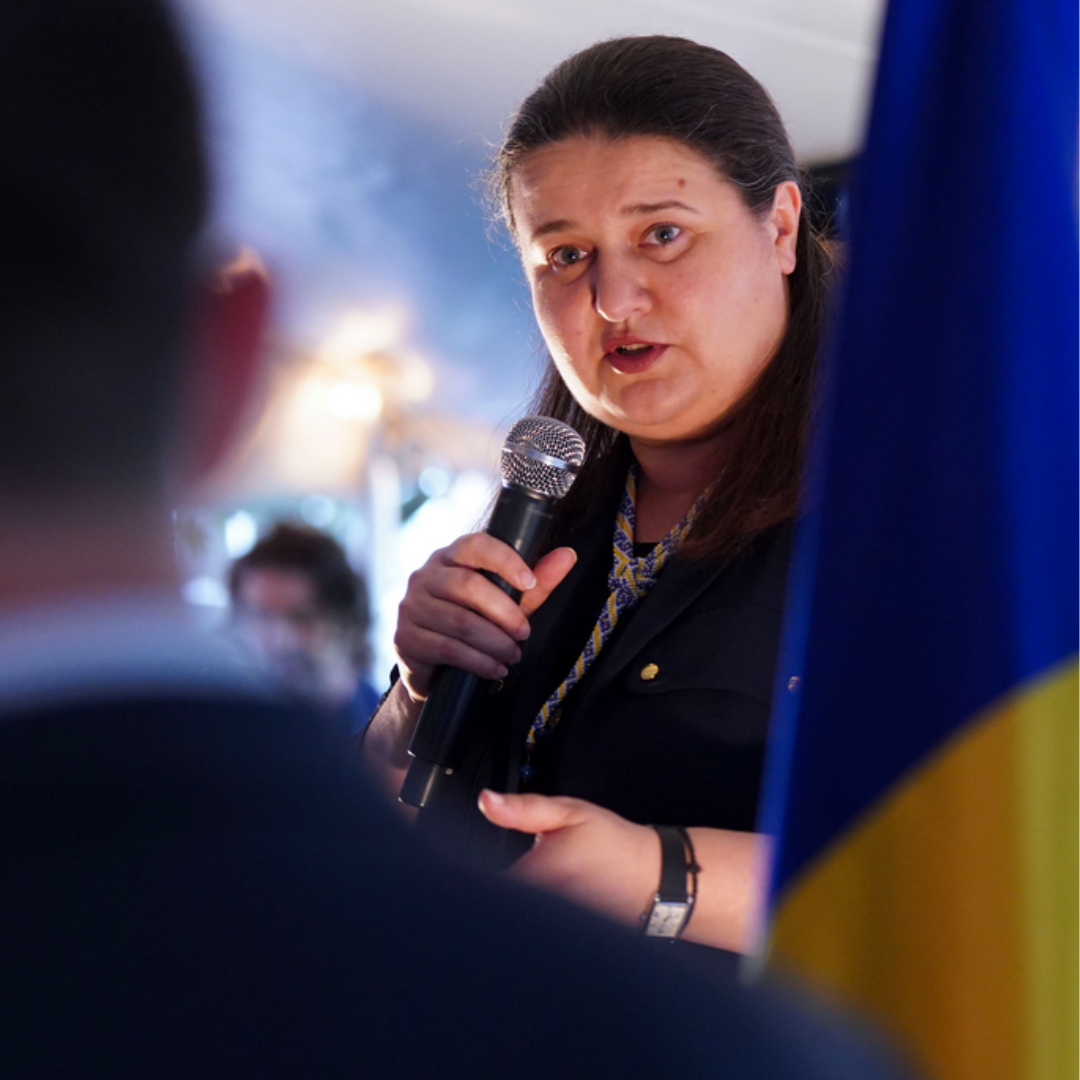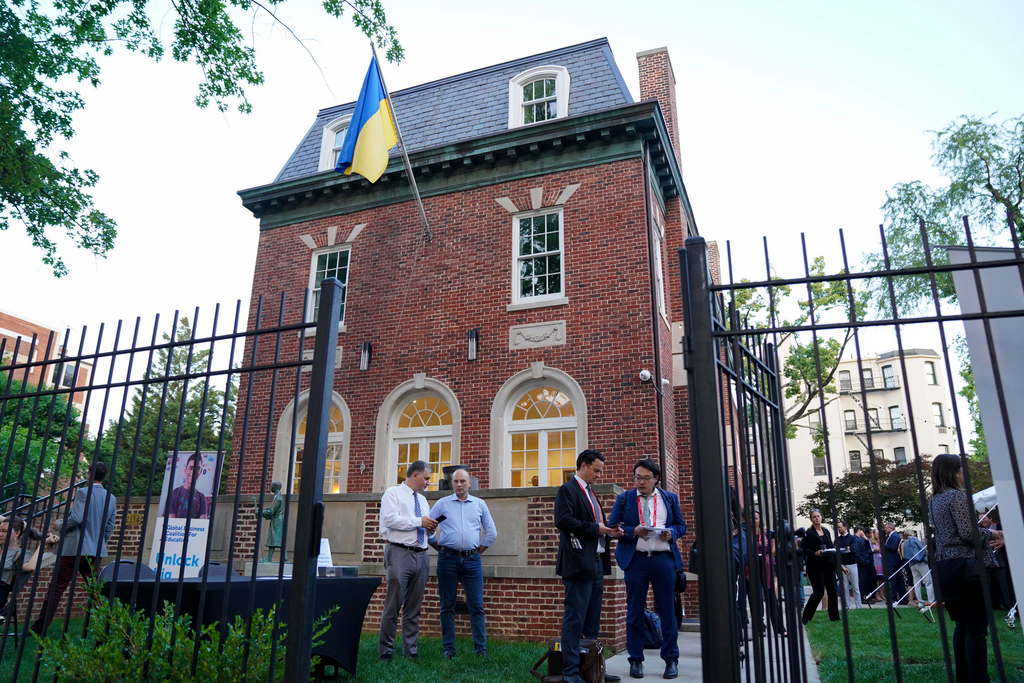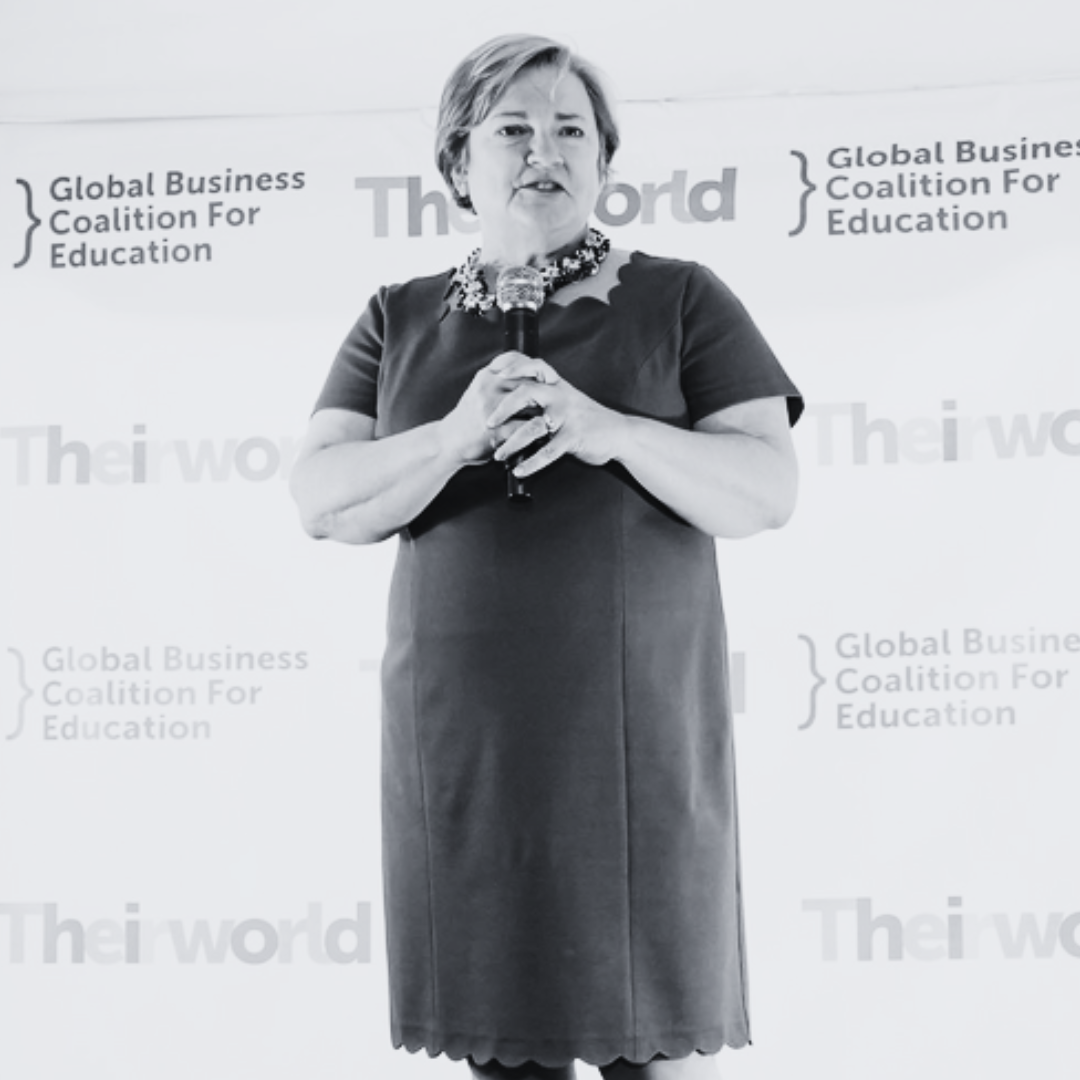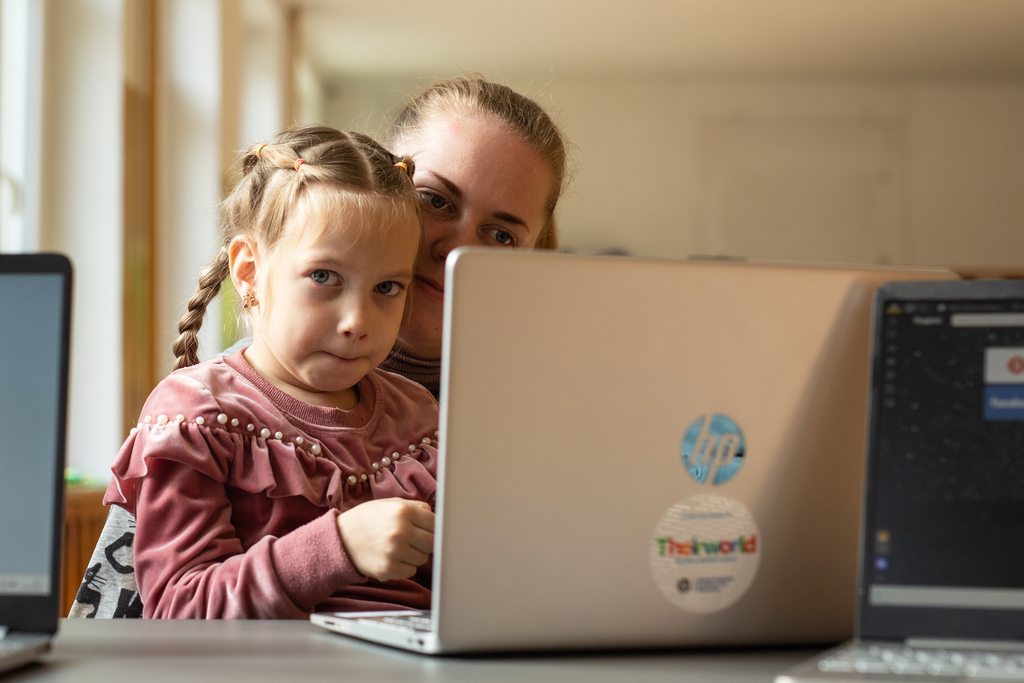$40m in computers for education in Ukraine

If we forget about culture and education during the war, then what are we fighting for?
Oksana Markarova, Ukraine ambassador to the United States
An article by the Washington Diplomat newspaper shows the way we worked with two multinational companies to make a difference for displaced children and refugees. (Reprinted with permission.)
After Justin van Fleet made a $30 million pledge to Oksana Markarova, Ukraine’s ambassador to the United States, he had to figure out a way to keep the promise.
Van Fleet is executive director of the Global Business Coalition for Education, a New York-based nonprofit committed to improving education around the world. Last July at Washington’s Ukraine House, he and representatives of HP Inc. offered to deliver computers and other devices to thousands of Ukrainian students, teachers and healthcare workers.
But, he wondered, what if a promise to distribute millions of dollars’ worth of education hardware became impossible amid Russia’s war against Ukraine?
The impossible turned out to be possible. As HP provided the devices, Microsoft got involved, donating software, training and licenses for families and teachers. On May 31, Van Fleet and representatives of both companies held a reception with Markarova to announce the delivery of 70,000 devices as well as software and learning programs worth a combined $40 million—way more than the original goal—and the single largest investment in Ukraine’s education system from abroad since Russia’s February 2022 invasion.
“A number of amazing people came together to do this initiative,” Markarova told 190 guests at a somber garden reception on a breezy evening with gray clouds that seemed appropriate for the occasion. The event took place as the Kremlin stepped up attacks against civilians across Ukraine, then blamed Ukraine for an unprecedented drone attack on Moscow that injured two people.

Event held for The Economist’s 3rd annual Sustainability Week, co-hosted by GBC-Education and Ukraine House in May 2023.
The ambassador recalled last July’s meeting with van Fleet and Ukrainian First Lady Olena Zelenska to discuss HP’s Digital Equity for Ukraine initiative. Originally intended to help internally displaced children, the program has grown over the past 10 months to assist Ukrainian refugee kids in half a dozen countries.
The donation, Markarova said, helped “so many Ukrainian children who have to study in the bomb shelters, who have to run to the shelters three or four times a day, like in this very difficult week.” She added: “We want them to be educated, we want them to thrive, we want them to learn, we want them to be our best future … If we forget about culture and education during the war, then what are we fighting for?”
She compared Ukrainian President Volodymyr Zelensky to Winston Churchill, then paraphrased the great British statesman: “When we win the war, we need to win the peace.”

For a refugee, a laptop or tablet is much more than a piece of hardware: It provides a connection, connecting to education, connecting to community, connecting to culture, connecting to normalcy during a time of crisis.”
Amy Burke, HP head of global policy and strategy
Guests included two other ambassadors, Austria’s Petra Schneebauer and the Marshall Islands’ Gerald Zackios, as well as international business leaders who came from a nearby sustainability conference hosted by Economist Impact.
From the beginning, Van Fleet was aware that Markarova had extensive business experience—she had once worked at a Kyiv investment firm—and was also her country’s finance minister. He explained that his 11-year-old organization helps businesses work together to support education. In this case, HP reached out to help, then Microsoft joined the initiative.
While the devices are mostly used for children’s education, Ukrainian parents who have fled to other countries often use them to search for jobs and translate conversations.
This year, the Global Business Coalition launched its Disaster Relief and Rapid Response Fund, which offers businesses information and partnerships to provide support during man-made and natural crises.
Guests crowded into a tent and watched in teary silence as van Fleet showed an emotional video about a boy who fled Ukraine for London with his mother, and later received a donated laptop.
Urging the audience to get involved and make a difference, van Fleet said: “We’re a coalition of people who can help businesses donate financial resources, expertise, talent, hardware or software, and channel that to support brave children and teachers in places like Ukraine.”
Amy Burke, HP’s head of global policy and strategy, said that for a refugee, a laptop or tablet is much more than a piece of hardware: “It provides a connection, connecting to education, connected to community, connecting to culture, connecting to normalcy during a time of crisis.”
Allison Knox, Microsoft’s senior director of education policy, implored business executives at the reception to consider the deeper meaning of their mission statements by helping causes such as children in Ukraine. “We’re saying to them, ‘You matter, and your future matters.’ ”

Veronika 5, with Mariia and a laptop from the Digital Equity for Ukraine project.
